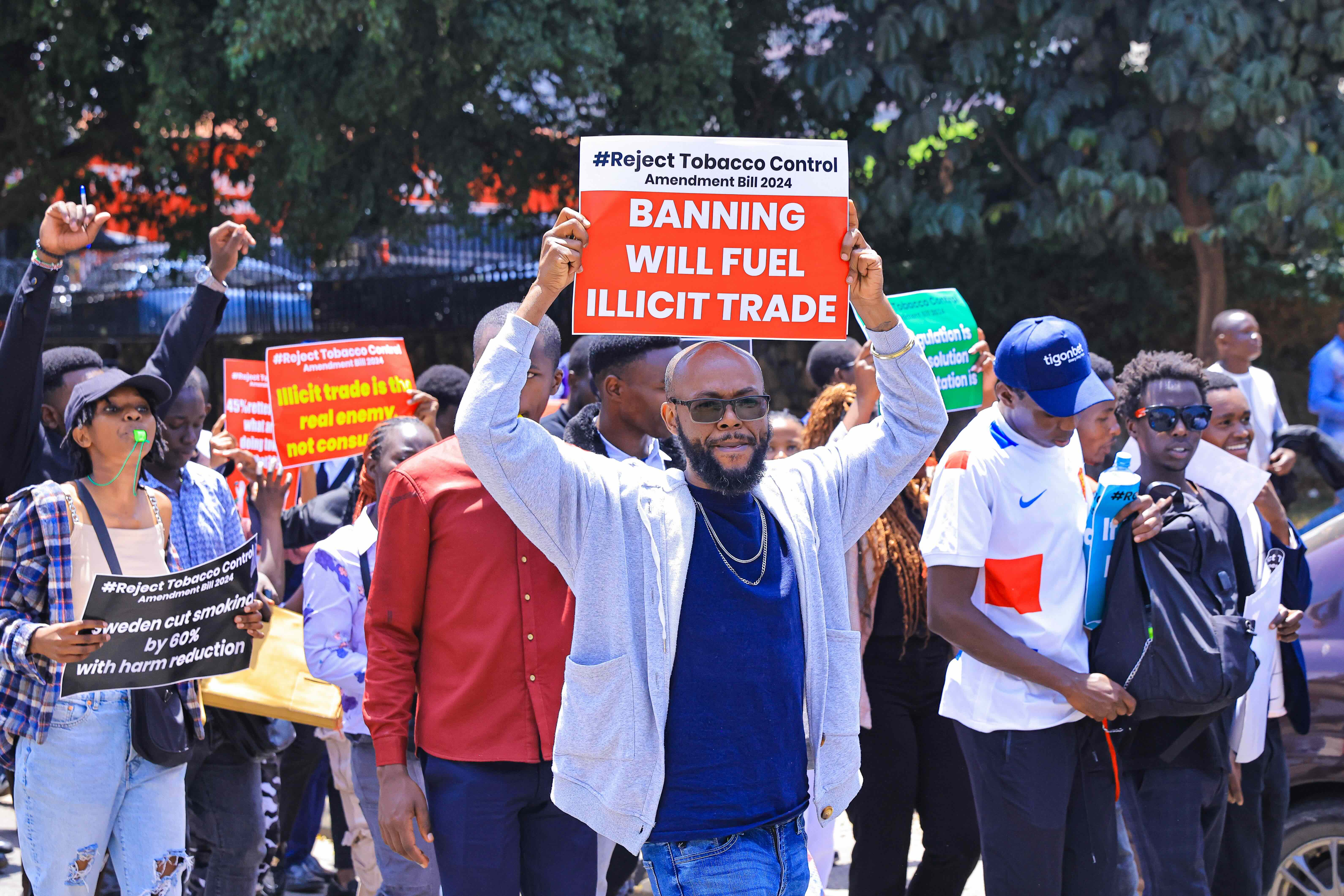

A majority of Kenyans believe that a proposed law to tighten restrictions on nicotine products will backfire, driving consumers to the black market, threatening jobs, and limiting access to safer alternatives, a new survey shows.
The Tobacco Control (Amendment) Bill 2024, currently before
the Senate, seeks to ban flavoured vapes and nicotine pouches while imposing
additional restrictions on other reduced-risk products.
Supporters say the measures are aimed at protecting public
health, but critics argue they will undermine tobacco harm reduction efforts.
A nationwide survey conducted by the Campaign for Safer
Alternatives (CASA) polled 1,022 adults between August 29 and September 4.
According to the findings, 73 percent of respondents said
banning vapes and nicotine pouches would lead to illegal sales and growth of
the black market.
Among users of such
products, 81 percent agreed the ban would push sales underground, while more
than half said they would easily find flavoured products illegally if
restrictions took effect.
CASA chairman Joseph Magero said the data shows the Bill
risks worsening Kenya’s already significant problem with illicit trade.
“Bans and excessive restrictions will only drive consumers
to criminals, fuel unemployment and deepen poverty,” Magero said. “Kenya’s
illicit cigarette trade already controls 45 percent of the market, and this
Bill will make a bad situation worse.”
The study also found strong support for harm reduction
strategies. Eighty-three percent of respondents said they back government
adoption of tobacco harm reduction policies, while 85 percent believe
encouraging smokers to switch to safer alternatives would help them quit.
Nearly two-thirds said the government should run awareness campaigns on the benefits of switching.

Last week, bar owners and retailers petitioned the Senate to
delay debate on the Bill until more public participation is conducted.
They argued the
legislation could hurt small businesses and limit consumer choice.
The economic impact of the Bill also emerged as a key
concern. Two out of three respondents (67 percent) identified unemployment as
the country’s most pressing challenge.
Critics of the Bill
say outlawing safer nicotine products would shut down legitimate businesses and
worsen joblessness.
“Safer nicotine alternatives are saving lives and easing the
public health burden around the world,” Magero said. “Banning them in Kenya is
a gift to the black market and a setback for thousands of smokers trying to
quit.”
The Bill seeks to update Kenya’s Tobacco Control Act of 2007
to regulate new nicotine products, restrict advertising, and ban unapproved
items.
Lawmakers are
expected to continue debate in the coming weeks, with pressure mounting from
both public health advocates and consumer groups.


















